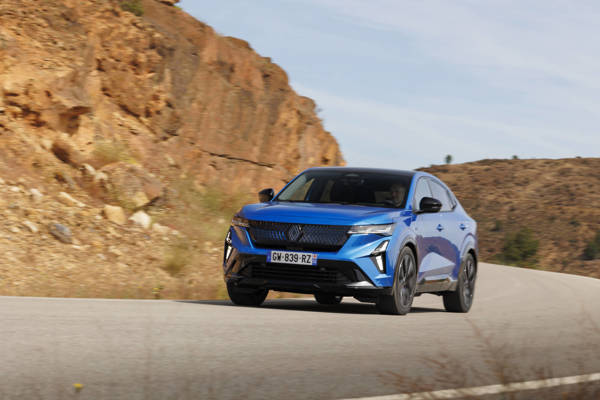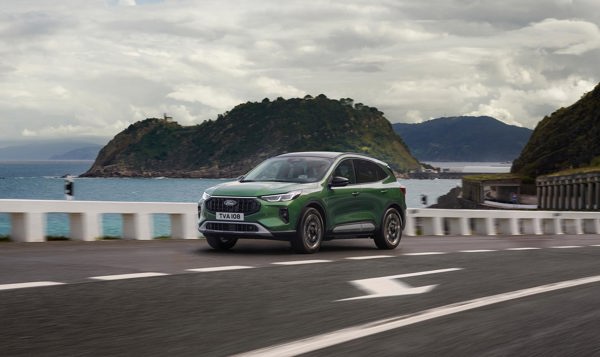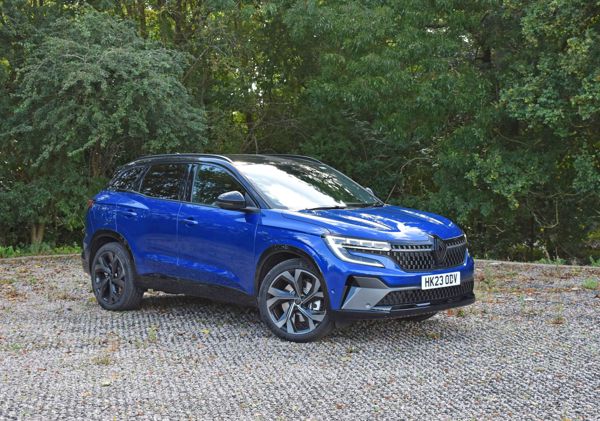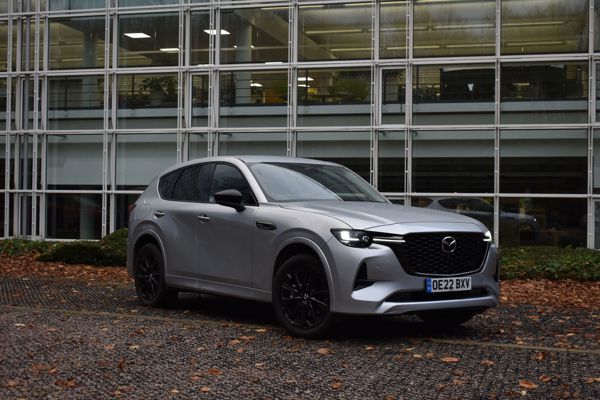Review
Low running costs, a high specification and impressive practicality make the Symbioz a stand-out model in the crowded mid-size SUV segment.
Overview
Renault has had a Nissan-Qashqai-shaped hole in its model line-up ever since it removed the Kadjar from sale.
That coincided with the introduction of the larger and more expensive Austral, leaving some customers with the choice of Captur or Arkana – neither of which are as practical as a proper c-segment SUV.
The Symbioz has arrived to well and truly plug that gap. It’s everything the old Kadjar was, and more.
There’s a hybrid petrol engine, for starters, that offers good fuel economy and low emissions. Pricing is very competitive, too, starting at £29,295.
It has a modern appearance, influenced by the new Scenic E-Tech, and the proportions are designed to maximise practicality and interior space.
The simple line-up consists of three trim levels: Techno, Techno Esprit Alpine and Iconic Esprit Alpine. In truth, the base version has everything you need.
Comfort and practicality
Pitched firmly at families, the Symbioz has a versatile interior with some neat touches. You might notice the dashboard is pretty much lifted straight from the Captur, utilising the same uncluttered layout and controls.
The seats up front are comfortable and supportive, with plenty of adjustments for a decent driving position. There’s also a sliding rear bench, which enables a trade-off between rear legroom and luggage space.
With the rear seat all the way back there’s a reasonable 492-litre capacity. But slide it forward and you open up a very usable 624 litres. A removable boot floor provides a level loading height and hides a much deeper storage space.
![]()
Opting for the range-topping trim gets you the Solarbay opacifying glass sunroof. It uses clever technology to do away with the need for a blind. The system darkens the sunroof in segments at the touch of a button.
Safety and technology
Renault is one of only a few car makers that have managed to deliver a largely button-less cabin without too much frustration for the driver. The Android-based Open R Link infotainment system in the Symbioz is impressive. It’s delivered by a portrait-mounted central touchscreen and uses Google services including Maps.
You can easily access all the key functions from the display and the climate controls are neatly integrated with quick-access physical buttons beneath the screen.
Drivers can customise the home screen so their preferred functions, such as navigation map and radio, are always displayed.
Smartphone connectivity is possible via Android Auto and Apple Carplay. There’s also a wireless phone charger pad and USB-C ports in the front and rear.
A second display, in front of the driver, provides a high resolution digital instument cluster.
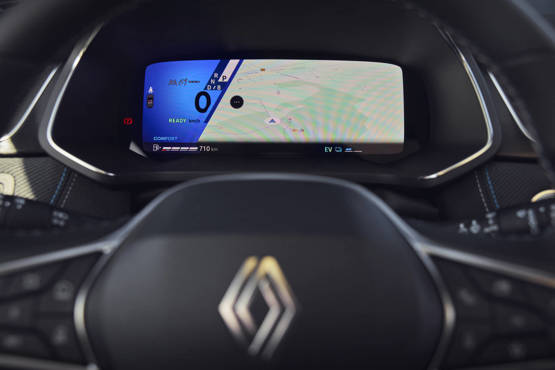
An array of safety and driver assistance systems are fitted as standard, including adaptive cruise control, lane keep assist, parking sensors and a rear-view camera.
There’s also a quick access switch that allows drivers to pre-configure their preferred safety settings, such as disabling speed limit assist, and apply them with a double tap of the button.
From the Techno Esprit Alpine grade and above, the Symbioz comes with Active Driver Assist - a level 2 autonomous driving system. It combines adaptive cruise control including Stop & Go with lane centring assist and traffic sign recognition to create a smart system that can drive autonomously, although the driver is required by law to maintain contact with the steering wheel.
Driveability and efficiency
All Symbioz models are powered by the same 1.6-litre E-Tech hybrid engine. It develops 145PS and has CO2 emissions of 105 – 108g/km.
The naturally aspirated petrol engine works in conjunction with two electric motors. There’s a complex clutchless transmission which allows the car to operate for short distances using electric power only.
As a driver, you just select ‘drive’ on the automatic gear selector and let the car work out the rest. Around town and in light throttle applications the system works very well, managing the multiple power sources for the greatest efficiency. When you want to accelerate more rapidly the system is less impressive. The gearing is extremely long and sometimes doesn’t kick-down in the way you’d expect.
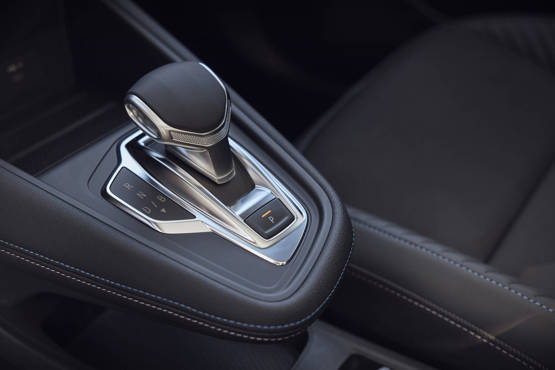
Fuel is economy is nonetheless impressive. On our test the car was managing 60mpg, which is precisely the WLTP figure. The ability to run silently in stop-start traffic, using the electric motor, also helps to improve refinement.
On the open road, the Symbioz is well resolved. It’s quiet and smooth with enough compliance in the suspension and steering to tackle tight corners or emergency manoeuvres with ease.
Company car tax and running costs
The Renault Symbioz makes a lot of sense as a company car, when compared to its immediate rivals. It’s considerably cheaper, and more efficient, than the Ford Kuga Hybrid. It also undercuts Nissan’s Qashqai E-Power by a decent margin.
Sitting in the 26% benefit-in-kind tax band, the Symbioz Techno will cost a 20% taxpayer around £125 month in company car tax.
For a business, it has running costs of just 37p per mile (4yr/80k). Only the MG HS PHEV offers a more compelling proposition at this price point.
Matt has been an automotive journalist for nine years and has driven just about every new car and van that's on sale. As content editor - vehicles he is responsible for the automotive content on Fleet News and also contributes to Automotive Management. Prior to this, Matt worked in the automotive industry for 10 years.


Specs
| Manufacturer | Renault |
| Model | Symbioz Estate |
| Specification | Renault Symbioz Estate 1.6 E-Tech FHEV 145 Techno 5dr Auto |
| Model Year | 2024.00 |
| Annual VED (Road tax) | £390 |
| BIK List Price | £29,050 |
| CO2 | 105g/km |
| BIK Percentage | 26% |
| Insurance Group | N/A |
| CC | 1,598 |
| Fuel Type | Petrol Hybrid |
| Vehicle Type | Medium SUV |
| Luggage capacity (Seats up) | 434litres |
| Doors | 5 |
Running Costs
| P11D | £29,050 |
| Cost per mile | 39.61ppm |
| Residual value | £14,125 |
| Insurance group | N/A |
| Fuel Type | Petrol Hybrid |
| Cost per mile | 90.02ppm |
| Fuel | 11.11ppm |
| Depreciation | 77.30ppm |
| Service maintenance and repair | 1.61ppm |
Rivals
Info at a glance
-
P11D Price
£29,050
-
MPG
60.1 (WLTP) -
CO2 Emissions
105g/km -
BIK %
26% -
Running cost
3 Year 60k : £14,125 4 Year 80k : £11,525 -
Fuel Type
Petrol Hybrid



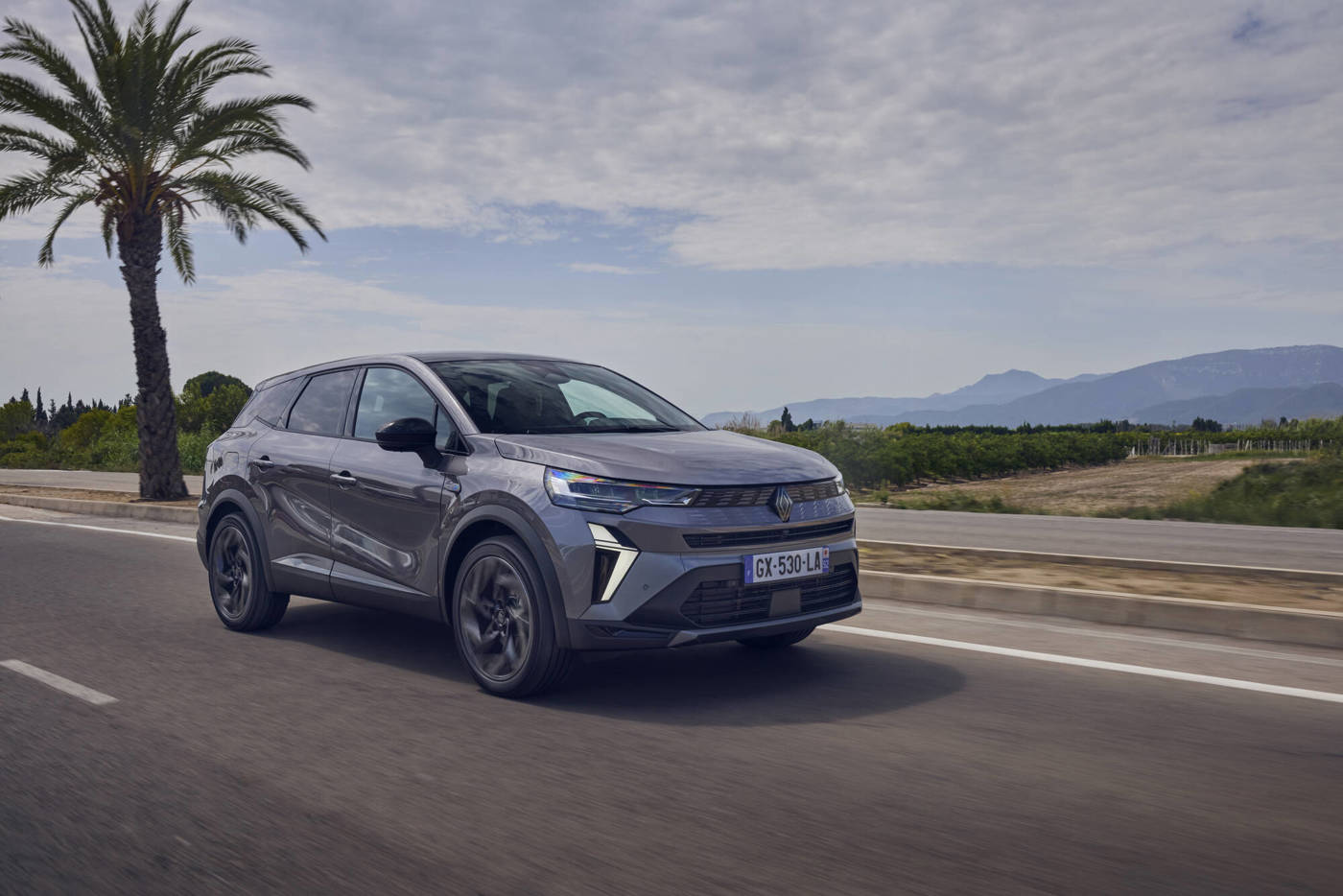
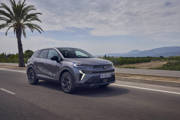
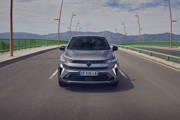
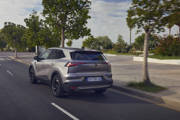
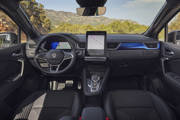
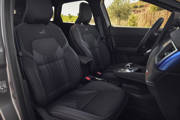
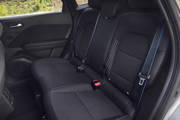
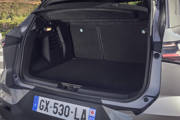
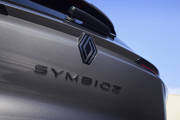
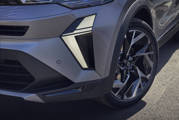
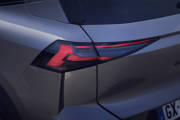

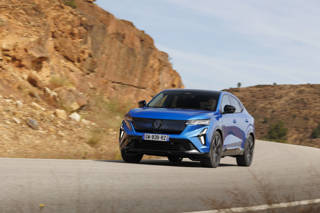
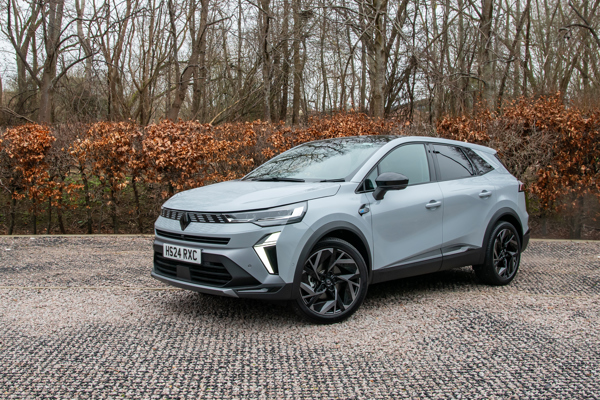
 Petrol Hybrid
Petrol Hybrid
